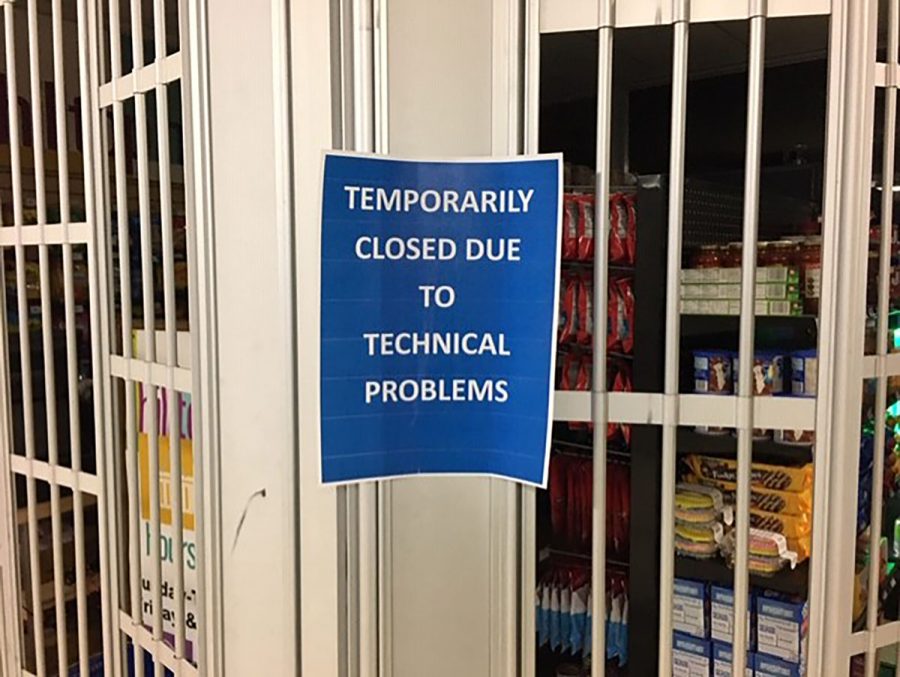System failure impacts campus
Credit card sales and other similar transactions deemed impossible
Photo by Robin Armagost
The system failure affected many areas on campus, including the Hilltop Market.
On the evening of Tuesday, Feb. 25 after routine server updates, a server was rebooted and the Transact database did not come back online, according to Kristin Schumacher, director of University Centers.
Several days later, on Feb. 28, signs were put up in Davies Student Center that said credit cards could not be accepted at that time.
On that same day, everyone through the Eau Claire campus received an email from Integrated Marketing and Communications.
“A software failure has impacted several systems in W.R. Davies Student Center,” the email said.
The email also said staff and vendors were working hard to fix the problem, but that credit card sales, product scanning and ID printing would not be possible for the next few days.
Card users without block meals or meal plan dollars would have to rely on the ATM or cash.
The system failure did not affect the University Bookstore or the Service Center due to them being web-based.
By Mar. 4, the situation was still not resolved — students, faculty and staff then received another email from Integrated Marketing and Communications.
“The software failure affecting systems across campus and including most locations that accept credit cards, ID card printing, and updates to electronic locks remains an issue,” the email said.
This email also said the issue was the top priority; however, an estimate on when the system will be brought back online is unclear.
“Most Transact systems act normally,” Schumacher said. “These systems are built to continue offline autonomously. Some subsystems, like credit card processing, need the central system to complete transactions. Some campus departments use their own credit card processors and are unaffected.”
Schumacher said they are unaware of what caused the system failure, but they are still investigating possible causes.
They believe the reboot may have unmasked hidden inconsistencies in the database.
Centers IT and LTS are working with the vendor — Transact — which in turn works alongside the database vendor Oracle, Schumacher said.
The database failed and needs to be rebuilt, which they are trying to do without any loss of data. So far, the data has been recovered from the failed database and they are in the process of rebuilding a fresh database.
The process of rebuilding the database will be covered by the vendors themselves and will not cost the university any money, according to Schumacher.
Schumacher said people are reviewing the problem and steps they can take to ensure that this issue could recover much faster, should something like this happen again in the future.
Sue Frank, one of the workers at Davies, said the system failure has made the workers’ jobs more difficult.
“We can’t scan items or tell someone how many dollars they have left on their account,” Frank said. “Everyone keeps asking if the system is back up and they’re all sick of running to the ATM.”
Stephanie Pyykola, the program assistant for Student Senate, said she often does not have cash and has to rely on others for it.
Another person affected by the issue is Muriel McMullen, a financial specialist in cash management. While the system failure is an inconvenience to her, she said the vendors are doing their best to resolve the problem.
“We want to thank everyone for their patience,” Schumacher said. “We are working long hours to bring the system back up to full capacity. As of (Mar. 6), we have been successful in importing the data and now have to build out the database objects. Once that is done, we will be able to see the data and determine what our next steps are.”
Armagost can be reached at [email protected].

Robin Armagost is a first-year English and Journalism student. She loves to play Pokémon and Super Smash Bros.











